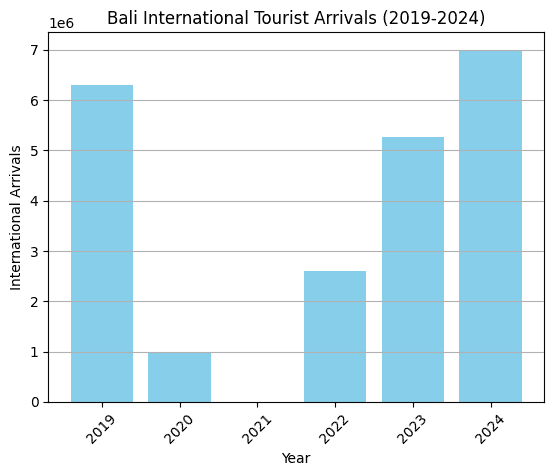The Island of Gods is experiencing a remarkable resurgence in tourism, with significant implications for its real estate market. This surge is shaping Bali into a dynamic and lucrative investment landscape, particularly in the luxury property sector.
Tourism Boom and Real Estate Correlation
Bali’s tourism industry has seen exponential growth, drawing millions of international visitors annually. By 2023, foreign tourist arrivals had reached approximately 1.03 million, driving up property transactions and stabilizing prices. This influx is expected to continue, with projections indicating Bali will welcome around 7 million visitors in 2024.

Key Tourism Statistics
- 2023: Approximately 5,300,000 international visitors
- 2024 Projection: 7,000,000 arrivals
On 2023, Bali is still ranked as the second most popular destination by TripAdvisor. This tourism boom significantly impacts the real estate sector, creating a symbiotic relationship between visitor influx and property dynamics.
Real Estate Market Trends
Luxury Accommodations on the Rise
The resurgence in tourism has fueled a robust recovery in Bali’s real estate market, particularly in the luxury segment. High-end resorts, boutique hotels, and upscale villas are proliferating across the island, especially in areas like Seminyak, Uluwatu, and Nusa Dua.
Emerging Hotspots
While traditional tourist areas continue to thrive, new locations such as Bingin and Uluwatu are gaining traction. These areas offer unique charms, stunning coastal views, and less crowded environments, making them attractive for boutique resorts and exclusive villas.
Vacation Homes and Rental Market
There’s a growing interest in holiday homes among international buyers. Many tourists are opting to purchase vacation properties in Bali, driven by the desire for a personal retreat and lucrative rental opportunities. The popularity of platforms like Airbnb and Vrbo has facilitated this trend, making it easier for property owners to market their holiday homes globally.
Investment Opportunities and Challenges
Opportunities
- Consistent rise in property values, averaging 15-20% annually
- Diverse investment options, from budget-friendly villas to upscale residences
- Potential for high rental income, especially in tourist hotspots
Challenges
- Strict foreign ownership regulations
- Infrastructure issues such as traffic congestion and limited water supply
- Balancing development with environmental and cultural preservation
Economic Indicators
Bali’s economy has been recovering well post-COVID and is now consolidating in preparation for further growth. Key economic indicators include:
- Positive balance of payments, indicating strong exports and foreign income
- Private consumption expected to drive growth in 2024, supported by increased business investment and public spending
Conclusion
The surge in Bali’s tourism is significantly impacting its real estate market, creating lucrative opportunities for investors. However, navigating this market requires careful consideration of regulatory, economic, and sustainability factors. As Bali continues to attract global tourists, the real estate sector offers promising prospects for those making informed investment decisions.
For potential investors, it’s crucial to stay informed about market trends, consider diverse investment options, and prioritize sustainable development practices. With the right approach, investing in Bali’s real estate market can yield substantial returns while contributing to the island’s long-term economic growth and cultural preservation.



